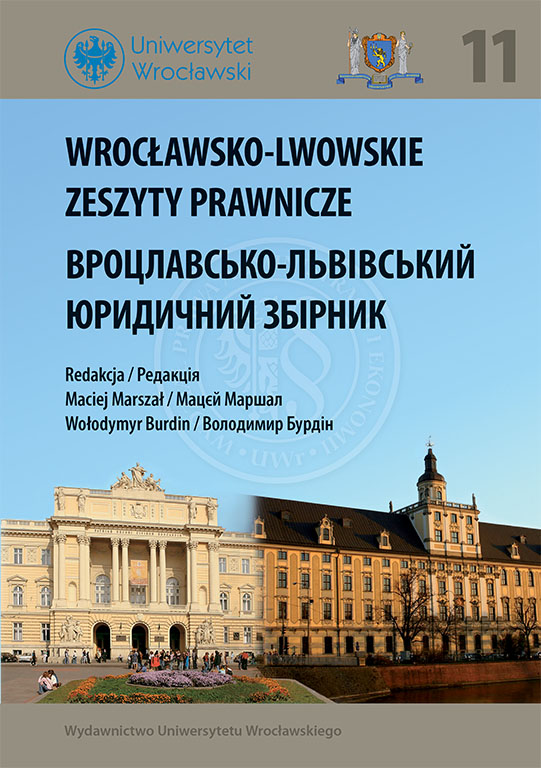

Articles

The article deals with characteristics of state social standards of social services and analysis of theoretical applied problems related to their definition in the legislation of Ukraine. The author analyzes rules of the Law of Ukraine “On state social standards and state social guaranties” and “On social services” and related by-laws in the context of mutual consistency in defining state social normative standards of social services. The researcher emphasizes that monitoring of the fulfillment of the legislative obligation of the state to guarantee the provision of basic needs of citizens at the level of state social standards requires defining the legislative limits of the concept of “basic needs of citizens in the sphere of social services”. The author points to a discrepancy between the rules of the law regarding the definition of the circle of eligible subjects in the sphere of social services. The researcher analyzes the term “social norms and normative standards” and concludes an unequal legislative content of this term in various normative acts concerning state social standardization of social services. The author proves that the term “social norms and normative standards” does not cover individual criteria for the realization of a person’s right to social services, contains only generalized social characteristics of expediency of use of budgetary funds, and is an indicator-determinant of the value of the subsistence level as the basic state social standard.
The article contains a characteristic of structural elements of the state social standard of social services. The author critically analyzes a legislative list of social services and their types. She lists examples of inconsistent use in the legislation of the terms “social prevention” and “social support”. The article contains the author’s arguments that the characteristic of social services as basic does not mean its specific social norming and does not bear upon the ambit of individual/family participation in payment for social services. The researcher clarifies the essence of the social normative standard “accessibility of social service”. It has been concluded that the mentioned norm is legally interpreted as the awareness of potential recipients about the parameters of social service provision. The researcher justifies the necessity to define legislative limits of the social normative standard “accessibility of social service” through the state′s obligation to provide these services to the recipient with maximum efficiency. The content of the concept of “quality of social service” is critically analyzed. The author asserts that they are not individual, do not relate to the personal performance of the recipient, but are the summary report of the activity of a particular social service provider per year. The researcher argues the necessity to differentiate the indicators of quality of social service separately for the recipient and the provider of social service is argued in the state standard.